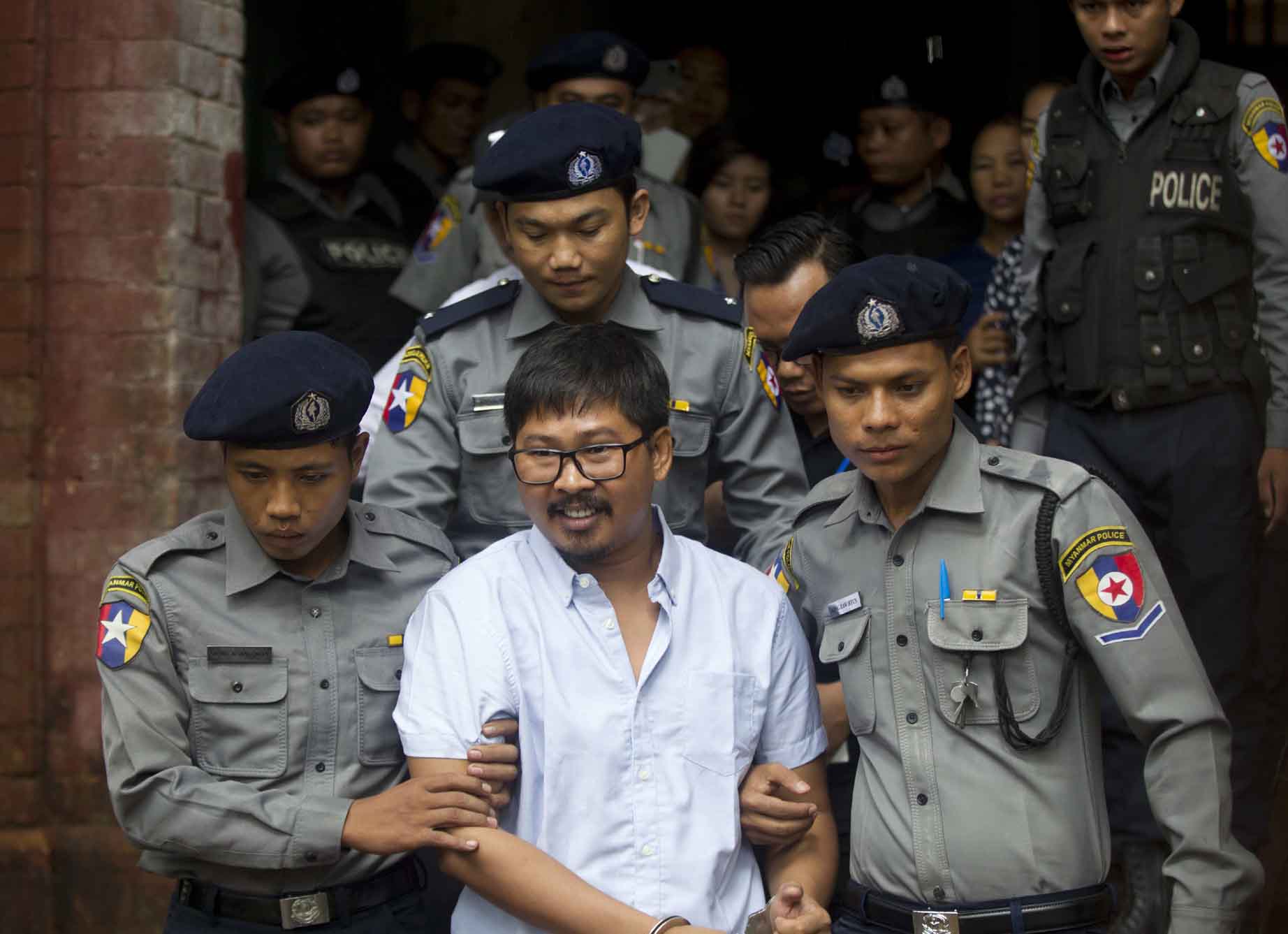
Top Myanmar court rejects appeal by Reuters reporters: Lawyer

Myanmar’s Supreme Court rejected an appeal on April 23 by two Reuters journalists jailed for seven years each on charges linked to their reporting on the Rohingya crisis, one of the defence lawyers confirmed.
Reporters Wa Lone, 33, and Kyaw Soe Oo, 29, have been behind bars since their arrest in December 2017 under the Official Secrets Act. The initial conviction in September was upheld by the Yangon High Court in January. On April 23, the reporters were not at the Supreme Court in the capital Naypyidaw to hear the ruling that once again went against them. “Our appeal was rejected,” Khin Maung Zaw told AFP. “They upheld the ruling of the lower court.”
Supporters believe the pair have been punished for investigating a massacre of 10 Rohingya Muslims in Myanmar’s western Rakhine state in September 2017. The story earned the team a Pulitzer Prize, one of the top honours in journalism. Wa Lone and Kyaw Soe Oo were convicted of possessing classified documents relating to security operations in Rakhine during a brutal military crackdown against the Rohingya that forced some 740,000 to flee over the border into Bangladesh.
Rights groups and legal experts say the case was riddled with irregularities. A whistleblowing police officer testified during their trial that his superior had ordered his team to trap the reporters in a sting — testimony the judge chose to ignore. Rights groups have urged Myanmar’s civilian leader Aung San Suu Kyi to use her influence to secure a pardon for the pair, but she has so far refused to intervene. “Wa Lone and Kyaw Soe Oo did not commit any crime, nor was there any proof that they did,” Reuters Chief Counsel Gail Gove said in a statement following Tuesday’s ruling. “Instead, they were victims of a police set-up to silence their truthful reporting. We will continue to do all we can to free them as soon as possible.”


